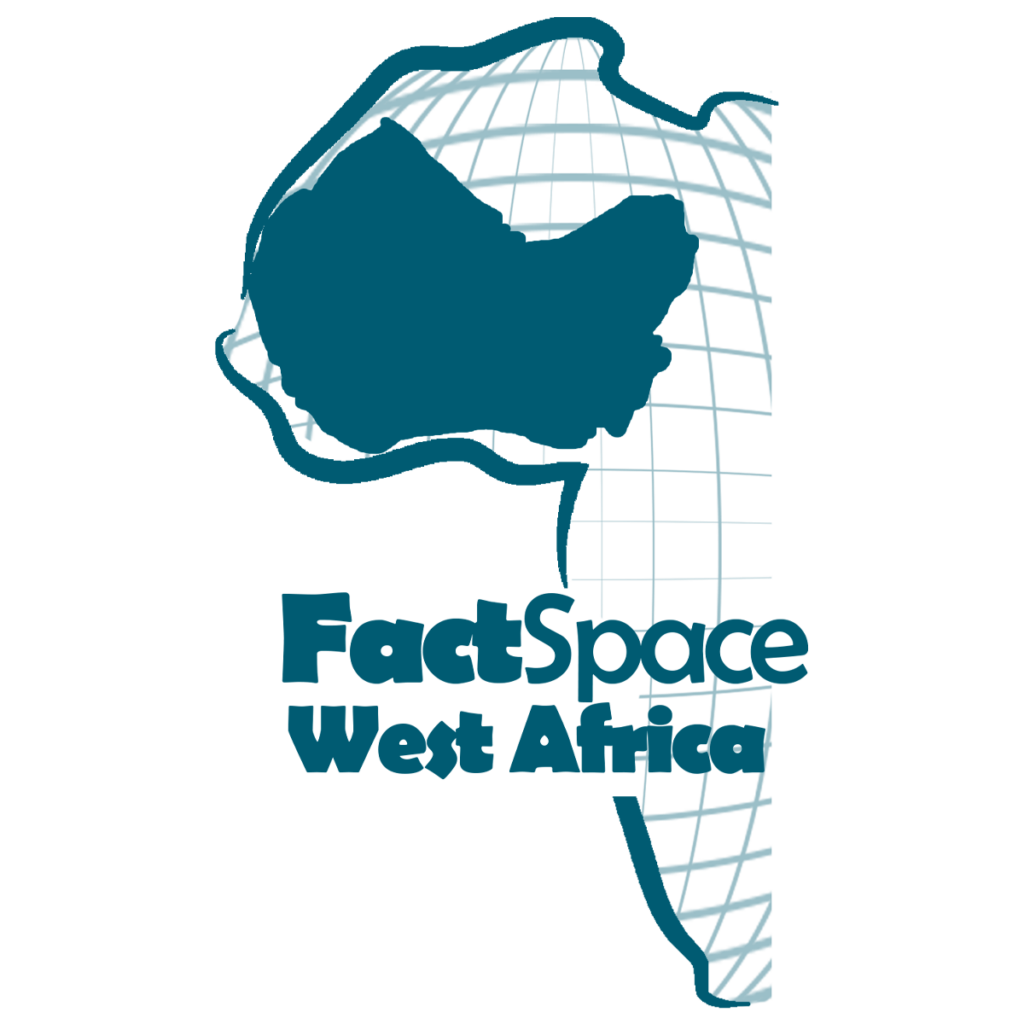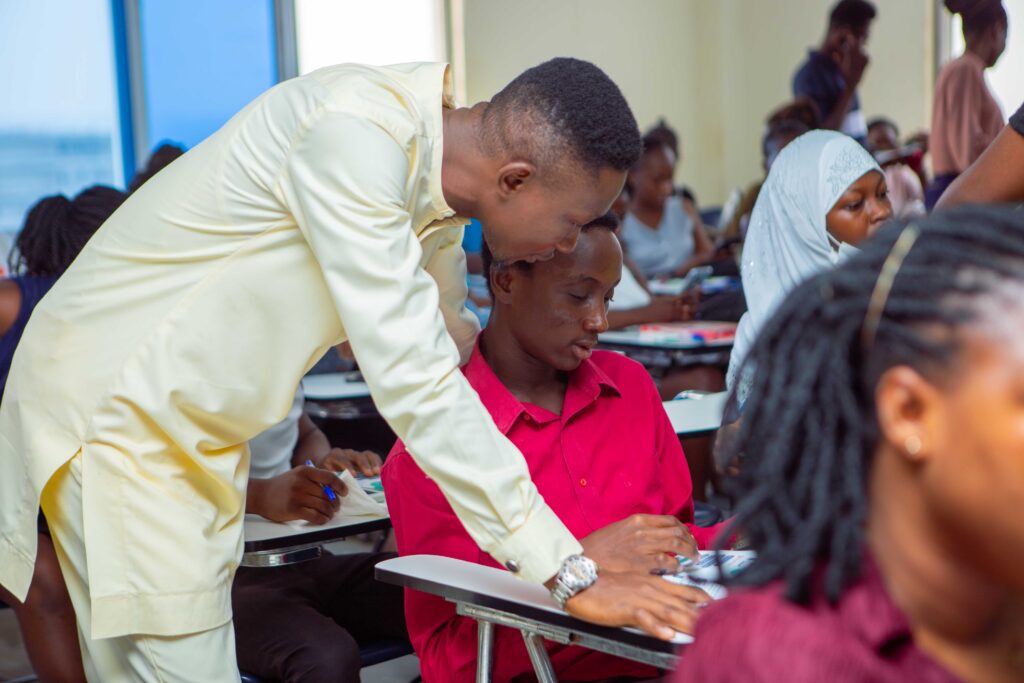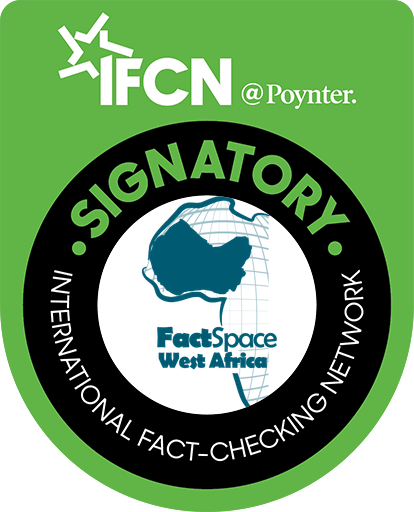FactspaceWA, Accra 12.02.2024 – FactSpace West Africa (FWA) and partners organized a successful training and activation session for journalism students of the University of Media, Arts and Communication—Institute of Journalism (UniMAC-IJ) in the Greater Accra Region. The session aimed to promote digital literacy among students and introduce them to the Cranky Uncle Vaccine game.
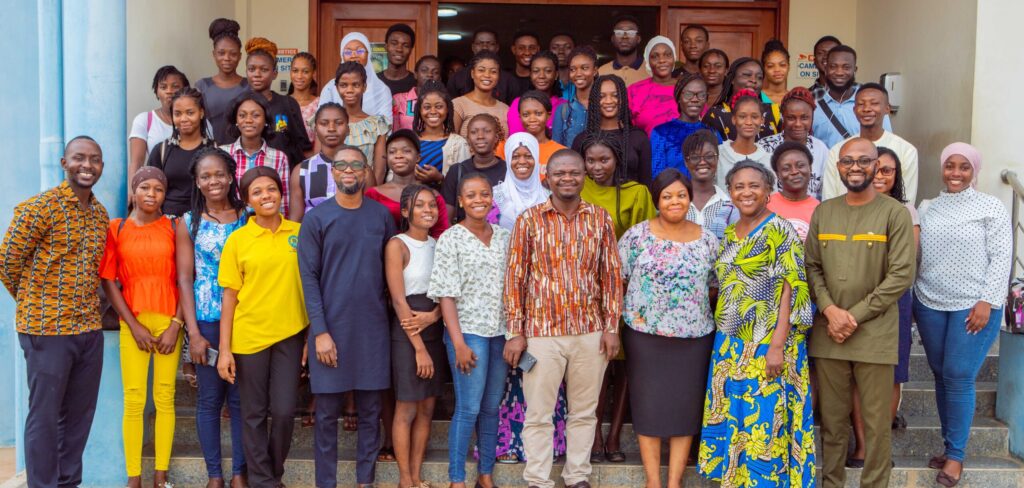
Fig 1 – A group photo of FactSpace West Africa trainers with UniMAC-IJ journalism class
The Cranky Uncle Vaccine game is a platform developed by UNICEF and the Ghana Health Service (GHS) in partnership with FactSpace to help curb misinformation surrounding vaccine hesitancy.
The project manager of FactSpace, Salifu Abdul Rahman urged the students to cautiously navigate the vast information available in the digital age with skepticism and critical inquiry.
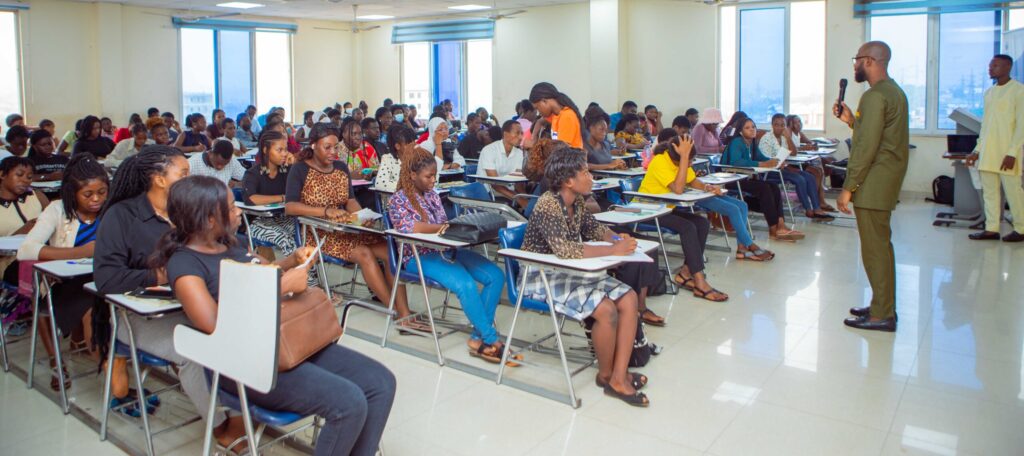
Fig 2 – Director of FactSpace, Rabiu Alhassan, addressing participants
The Director of FactSpace, Rabiu Alhassan elaborated on the typical editorial process newsrooms go through, before posing the question about “who directs what gets posted on social media.” He also emphasised the importance of digital tools in verifying information authenticity.
To further drive home the importance of accurate information, Rabiu introduced the Cranky Uncle Vaccine App using the flier, aimed at helping young people inoculate themselves with accurate health information.
Salifu, on his part, guided students through various channels for accessing the Vaccine Game, including the WhatsApp Chatbot, Agoo 5100. He also introduced typical characters of the Cranky Uncle found in multiple communities.
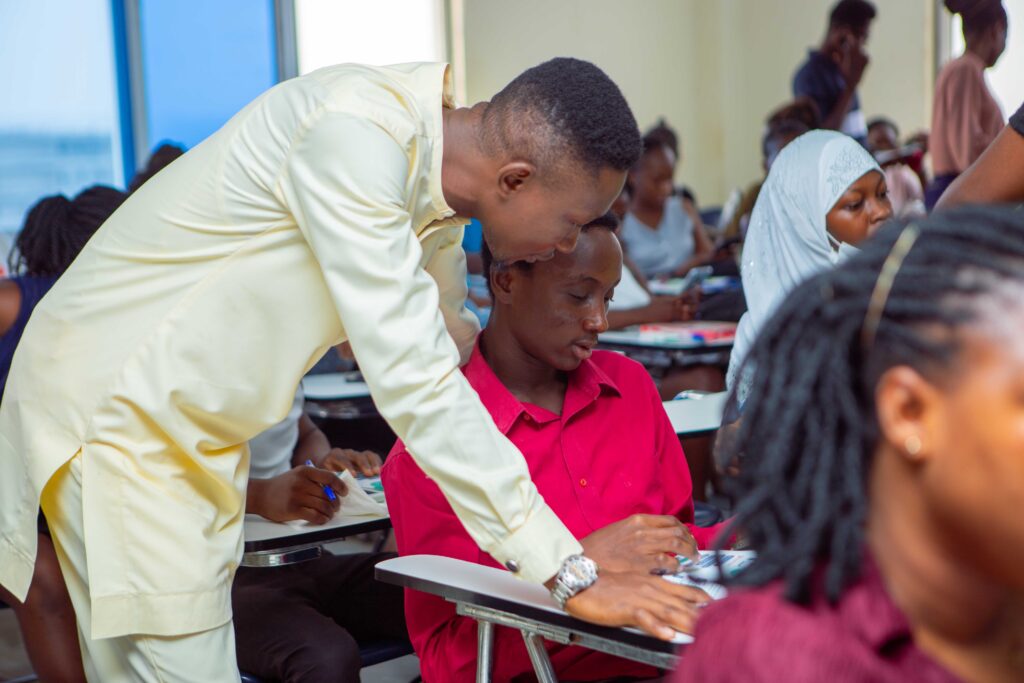
Fig 3 – Projects Director of FactSpace, Salifu Abdul Rahman engages one of the participants
The engagement sessions were well-received by students, contributing to a more informed and vigilant community in combating vaccine misinformation, as per the remarks of one of the lecturers with the campus, Stephen A. Tindi.
About the game
The Cranky Uncle Vaccine app, was designed and deployed in East and West Africa, incorporating elements such as quizzes, challenges, and rewards to engage participants in an immersive learning experience.
Through co-design workshops with health workers and young people, the game content was carefully curated to reflect the cultural context in Ghana. 1,000 young participants were selected from institutions in Ghana and furnished with the app for testing.
The app aims to explore the potential impact of gamification to foster community resilience, promote fact-checking behaviors, and reduce the amplification of misinformation through social networks. By engaging users in immersive and enjoyable experiences, gamification not only empowers individuals to distinguish between credible and false information but also cultivates a sense of collective responsibility in curbing the spread of misinformation.
By Julius Kofi Satsi
